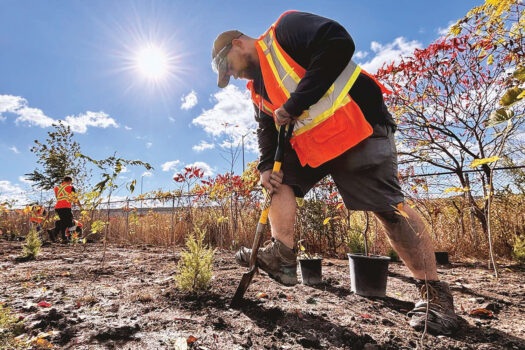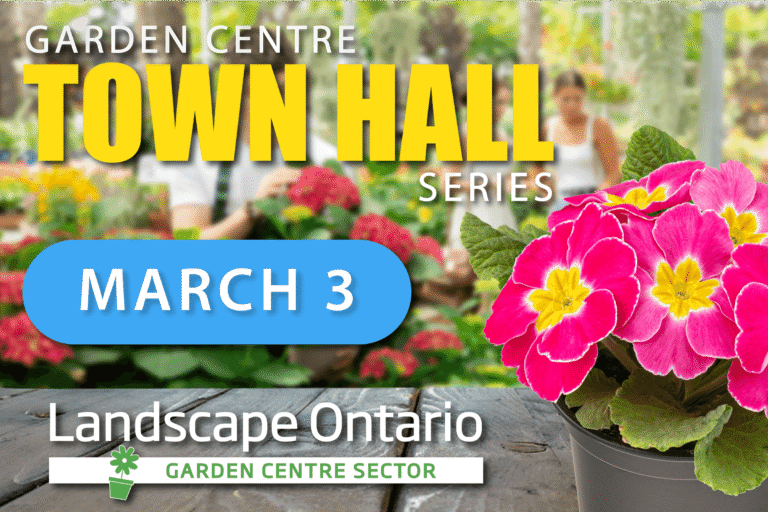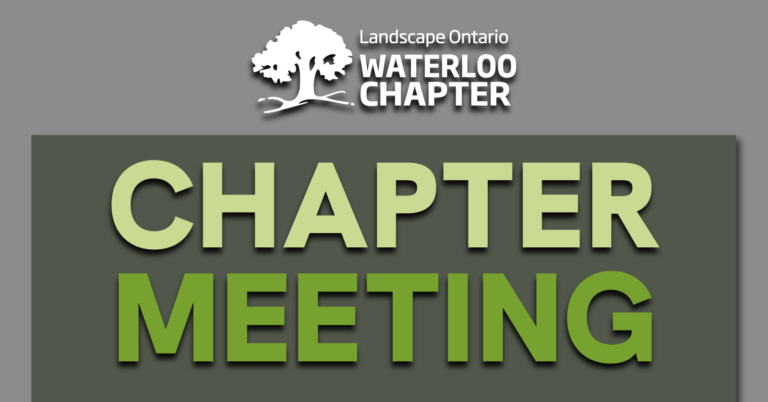By Allan Dennis
Wildflower Farm isn’t your average garden centre. As a matter of fact, it doesn’t fit into any easily definable model. It’s in a category all its own.
Miriam Goldberger and Paul Jenkins began their business 20 years ago. What was first a hobby has turned into a million dollar-a-year enterprise. When everyone began focusing on sustainability, Miriam and Paul were already living it at their home and business.
With no formal education in horticulture — Paul’s background is in the graphics and printing industry and Miriam’s in public relations — they developed their own processes. They became members of Landscape Ontario in 1998. They first began their business in the Schomberg area, just north of Toronto. Five years ago they left that area to move to their present location on a 95 plus-acre farm, located near Coldwater on Highway 12, between highways 11 and 400.
The attraction of the Coldwater property was its size, which Miriam and Paul knew would allow them to expand their native seed production operation. During a six month period they moved over 10,000 plants from Schomberg to Coldwater.
Despite its out-of-the-way location, the business grew even faster after the move to Coldwater. Today Wildflower Farm has a huge array of native plants. Miriam and Paul grow their own plants in three greenhouses, to sell both in their garden centre and online, and to create demonstration gardens. What they don’t have are traditional garden centre products such as petunias, impatiens and pesticides. Five full-time and four full-time seasonal employees handle the duties at the farm.
A sustainable lawn
Another major component of the business is the product Eco-Lawn, a blend of fine fescue grasses that requires less watering and mowing than traditional lawns. Paul developed the product over a period of four years, through a process of trial and error. He originally came upon the idea while walking in the bush area in Muskoka. He noticed a clump of fescue growing under terrible conditions. Obviously, if this grass could grow in these harsh conditions, it could grow anywhere. The trick was to turn the clump into a product that would produce sod. After three years of experimentation, he landed upon his combination of grasses. He then talked a friend into digging up his lawn and planting Eco-Lawn. In 1998 the product was launched onto the market. Paul remembers introducing Eco-Lawn his first year at LO’s Congress, followed by a booth at Canada Blooms. “It attracted very little attention,” says Paul. Back then, the environment was not the number one issue in the minds of the public.
That was then. Now sales all across North American have grown by 20 per cent each year. Over 70 per cent of sales are through the Internet.
“Eco-Lawn is a low maintenance lawn,” says Miriam. The deep roots of the fescue eliminate the large amount of water and nutrients required by traditional lawns.
Native wildflowers
The farm’s catalog lists 115 native wildflowers. These include everything from Actaea pachypoda (doll’s eyes) to Zizia aurea (golden Alexanders). Wildflower Farm’s website offers the opportunity to choose the wildflowers best suited for customers by allowing them to select soil type, sun and moisture conditions. Or, the customer may enter his state or province to see what Wildflower stocks native to the region.
When Horticulture Review toured Wildflower Farm, it was obvious that this is a business of contrasts. A piece of machinery from the 1940s harvests wildflower seeds, while the latest computer equipment is used to market the seeds collected from the old-time, but very effective, harvester.
Miriam handles marketing and the retail store, as well as conducts seminars and workshops on sustainable horticulture, while Paul takes care of the production aspect and the financial side of the business. They share great passion and enthusiasm for their business equally.
Captions:
This 60 year old piece of technology is very effective when it comes to harvesting seeds from the numerous acres of native plants grown at Wildflower Farm.
Miriam Goldberger and Paul Jenkins developed the new product Eco-Lawn.








